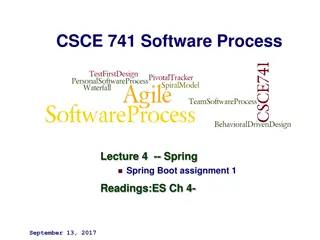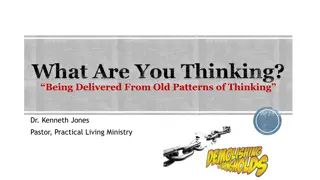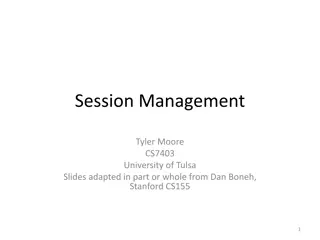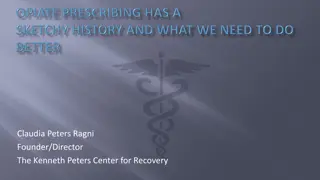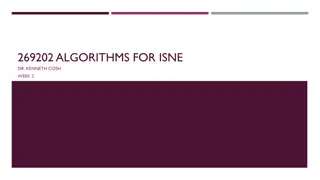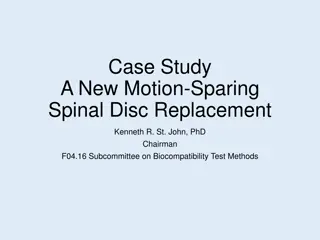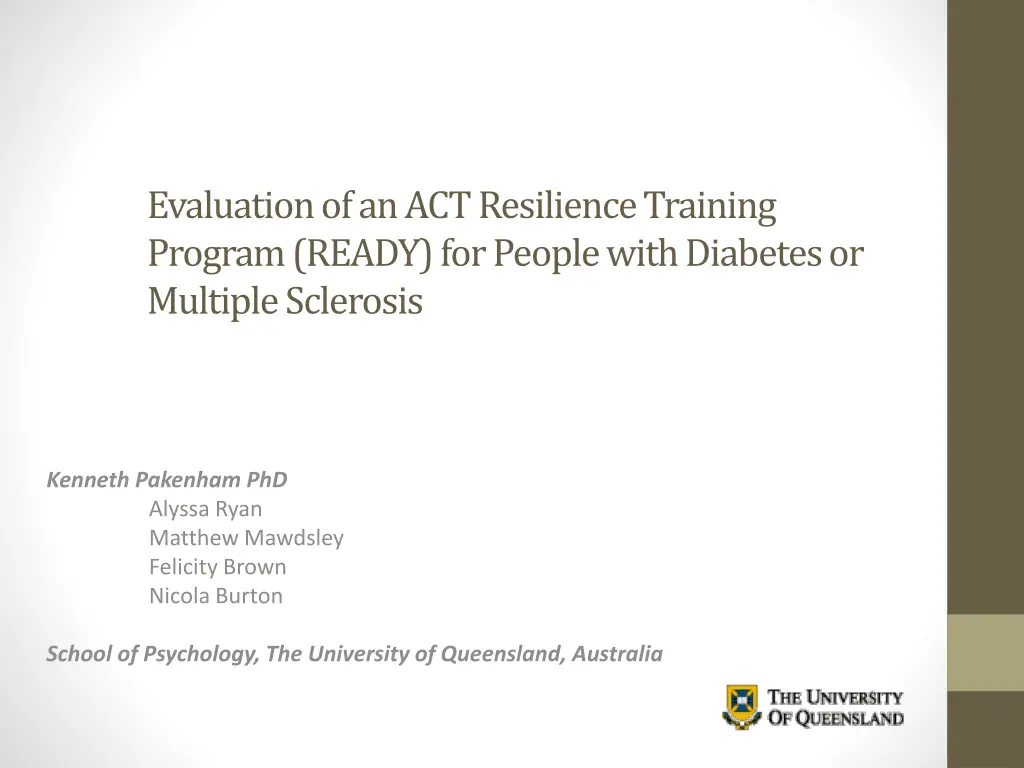
Evaluation of ACT Resilience Training Program for Chronic Illness
Explore the evaluation of the ACT Resilience Training Program (READY) for individuals with diabetes or multiple sclerosis, focusing on resiliency and psychological flexibility through a comprehensive model. The program targets key protective factors associated with resilience and includes therapeutic interventions and resources for enhancing coping strategies and social support.
Download Presentation

Please find below an Image/Link to download the presentation.
The content on the website is provided AS IS for your information and personal use only. It may not be sold, licensed, or shared on other websites without obtaining consent from the author. If you encounter any issues during the download, it is possible that the publisher has removed the file from their server.
You are allowed to download the files provided on this website for personal or commercial use, subject to the condition that they are used lawfully. All files are the property of their respective owners.
The content on the website is provided AS IS for your information and personal use only. It may not be sold, licensed, or shared on other websites without obtaining consent from the author.
E N D
Presentation Transcript
Evaluation of an ACT Resilience Training Program (READY) for People with Diabetes or Multiple Sclerosis Kenneth Pakenham PhD Alyssa Ryan Matthew Mawdsley Felicity Brown Nicola Burton School of Psychology, The University of Queensland, Australia
Resiliency and Psychological Flexibility resilience = the process of negotiating, managing and adapting to significant sources of stress or trauma. Assets and resources within the individual, their life and environment facilitate this capacity for adaptation and bouncing back in the face of adversity. (Windle, Bennett & Noyes, 2011, p. 2) Psychological flexibility is related to resiliency (Kashdan & Rottenberg, 2010)
Resiliency and Psychological Flexibility ACT informed resiliency training: READY (Resilience for Every Day) Targets key protective factors associated with resilience (Southwick, Vythilingam & Charney, 2005): Positive emotions / acceptance Cognitive flexibility Coping strategies Meaning Social support ACT Intervention approach Therapist and Participant manuals
READYModel of Resilience Feeling Doing Coping strategies Acceptance RESILIENCE Cognitive flexibility Social support Relations Meaning Thinking Being
5 Life Domains Doing Feeling Coping strategies Acceptance RESILIENCE Cognitive flexibility Social support Relations Thinking Meaning Being
Protective factors Feeling Doing Coping strategies Acceptance RESILIENCE Social support Cognitive flexibility Relations Thinking Meaning Being
What is READY? 11 x 2 hour modules delivered in group setting Mix of intervention strategies: experiential activities information giving large/small group discussions individual critical reflection metaphors skills rehearsal homework Resources: Workbook CDs READY personal plan
What is READY? Modules: Introduction to resilience, stress and the READY model Mindfulness Acceptance Defusion I Defusion II and Observer self Values/meaning Positive emotions/pleasurable activities Physical activity Positive relations Review sessions
READY Prior Research Pilot Study (n = 18) Burton, Pakenham & Brown (2010) Psych, Health & Med RCT, colorectal cancer; telephone delivered (n = 410) Methodology Hawkes, Pakenham et al. (2009) BMC Cancer Health Behaviour Outcomes: Hawkes, Chambers, Pakenham et al. (2013) Journal of Clinical Oncology Quality of Life Outcomes: Hawkes, Chambers, Pakenham et al. (2013) Annals of Behavioral Medicine RCT (n = 100) Burton, Pakenham& Brown, (2009) BMC Public Health
READY: Diabetes Single intervention condition pre- & post-intervention assessment (n = 20) 3 month follow-up (n = 11) 10 two-hour weekly group sessions 3 groups All READY modules used: Introduction to resilience and stress Mindfulness Acceptance Defusion I Defusion II and Observer self Physical activity Values/meaning Positive relations Positive emotions/pleasurable activities Review session
READY: Diabetes DEMOGRAPHICS mean age = 54 yrs; range = 24 - 74 yrs HEALTH 70% Type II diabetes General health: poor 35% fair 25% good 35% 70% female 75% Anglo Australian 45% with partner 60% employed mean BMI fell in the moderate obese range (WHO, 2000) range 16.23 (underweight) to 57.85 (very severeobese) Education: 15% high school 60% certificate/trade 25% university edu
READY: Diabetes MEASURES: Primary Outcomes: Resilience(15-item Resilience Scale; Neill & Dias, 2001) Quality of life WHO Quality of Life Questionnaire Brief Form Diabetes Quality of Life Measure (Jacobson et al, 1988) Diabetes-related distress (Polonsky et al, 1994) Mood: depression, anxiety, stress (DASS-21; Lovibond & Lovibond, 1995)
READY: Diabetes MEASURES: Protective Factors: Physical activity sitting time (Sitting Time Questionnaire; Marshall et al, 2009) step count (Pedometers) time in physical activity (The Active Australia Survey; AIHW, 2003) Positive affect (PANAS; Watson & Clark, 1988) Problem-focused coping (Brief COPE; Carver, 1997) Social connectedness (Brief COPE; Carver, 1997) Acceptance(AAQII; Bond et al, 2011) ) Mindfulness(Mindful Attention Awareness Scale; Brown & Ryan, 2003) Valued living (VLQ; Wilson et al, 2010)
ANOVA (n = 11) p t-test (n = 20) p PRIMARY OUTCOMES .015* .007** Resilience .019* .053 Total QoL .019* .020* Physical QoL .019* .000** Self-rated QoL .009** .008** Self-rated health .038* .278 Overall Diabetes QoL .002** .084 Diabetes Satisfaction .073 .010** Diabetes-related Distress .059 .002** Depression .083 .041* Anxiety .016* .004** Stress
ANOVA (n = 11) p t-test (n = 20) p PROTECTIVE FACTORS .067 .010** Positive affect .059 .013* Problem-focused Coping .021* .029* Mindfulness .015* .001** Acceptance .022* .015** Valued Living .001** .001** Physical Activity Step Count .019* .003** Physical Activity Sitting Time
READY: Diabetes qualitative data from participants and facilitators supported the statistically significant changes participants reported greater: resilience stress management skills mindfulness acceptance defusion values driven living
READY: Diabetes Engagement and Satisfaction 20 completed the intervention 2 dropped out 90% attended more than half the program 55% attended more than 80% of sessions Homework completion: Mean rating = 3.50 5-point scale: 1 = unable to complete homework 2 = read materials only 3 = made brief notes and practiced some activities 4 = did most activities 5 = did all activities Lowest mean ratings for any week: session 4 Defsion 3.17 session 9 Positive emotions/pleasurable activities 3.17 Mean satisfaction rating = 4.70; 5-point rating scale
MS Context complex neurological disorder typically degenerative prevalence is twice as high in women as in men onset 20 - 40 no known cause or cure course is unpredictable clinical symptoms vary widely symptoms affect most, if not all, areas of a person s life
READY for MS Modified READY: 1. Introduction 2. Mindfulness 3. Acceptance 4. Defusion 5. Defusion & Observer self 6. Values/meaning (self-care/pleasurable activities & positive relations) 7. Review session Booster session 5 weeks later
READY for MS Single intervention condition with pre- & post-intervention and 3 month follow-up assessments 3 groups completed to date (n = 35) 27 completed pre- and post-treatment questionnaires Mean age = 49.30 years (SD = 11.58); range = 28 70 years 67% females Mean illness duration = 8.26 years (SD = ); range = 4 months 30 years 78% relapse remitting
READY for MS Primary outcomes: Resilience Quality of life (MS QoL-54; Vickrey, 1995) Positive affect Emotional distress Secondary outcomes (ACT processes): Defusion (Drexel Defusion Scale; Forman et al, 2012) Values Mindfulness Acceptance (MS Acceptance Q aire; Pakenham & Flemming, 2011)
READY for MS: Preliminary Results Outcomes t-value p PRIMARY OUTCOMES Global Distress 2.37 .028 Depression 2.61 .016 Stress 2.52 .021 Anxiety Resilience ACT PROCESSES Defusion -3.01 .007 Values -3.49 .002 Acceptance Willingness -3.05 .006 Acceptance Action Mindfulness
READY for MS: Preliminary Results Engagement and Satisfaction: Of the 35 participants, 5 drop-outs: 2 prior to commencement 1 at session 2 1 at session 3 1 at session 5 80% attended all 7 sessions Homework completion (5-point scale) Mean rating = 3.7 Overall mean rating of skills learned (eg. Values, defusion) Helpful = 4.2 Enjoyable = 4.4 READY program helped me become more resilient = 4.1 Recommend the READY program to others with MS = 4.5









